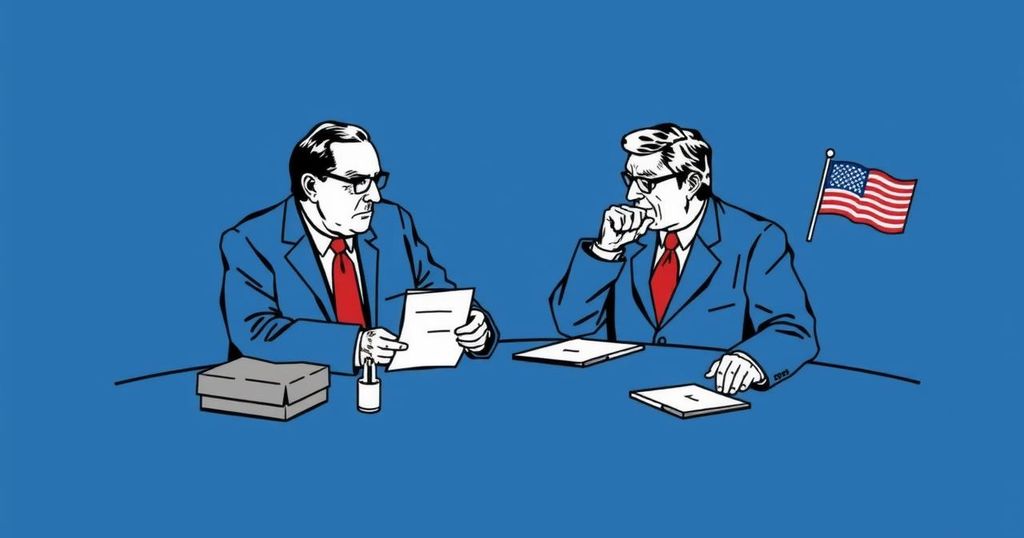Challenges of Precanvassing Mail Ballots in Pennsylvania Elections

Pennsylvania election officials face frustrations regarding the state’s precanvassing rules for mail ballots, which do not allow processing to begin until Election Day. This regulation contributes to delays in reporting results and raises concerns over voter confidence in the electoral process. Although improvements have been made since the 2020 election, political disagreements hinder progress on necessary reforms, particularly in relation to voter ID laws.
HARRISBURG — The implementation of no-excuse mail voting during the 2020 presidential election tested Pennsylvania’s election infrastructure. In the wake of the COVID-19 pandemic, voter participation through mail ballots surged, exposing challenges within the state’s rules that govern the precanvassing of mail ballots. Precanvassing refers to the preparatory actions taken by election officials to handle mail ballots prior to Election Day, such as checking signatures, opening envelopes, and preparing ballots for tabulation. Notably, Pennsylvania remains one of the seven states that does not permit election workers to start processing these ballots until 7 a.m. on Election Day, compounding delays in returns when the polls close. This limitation has caused significant concern among election officials, particularly given the previous experiences during the last presidential election when former President Donald Trump propagated unfounded claims of electoral fraud linked to the slow count of mail-in ballots. As Secretary of State Al Schmidt remarked, “That period of uncertainty is something that is exploited by bad-faith actors to undermine the confidence in the outcome.” Since 2020, Pennsylvania’s election landscape has evolved with the increased experience of county election directors and the infusion of state funds aimed at improving election processes. Nevertheless, legislative disagreements persist, with Republicans demanding that any advancement in voting procedures be tethered to enhanced voter identification requirements. Conversely, Democrats have resisted, resulting in no agreed-upon framework for extending the timeline for precanvassing. The current operating standards place immense pressure on election officials, who must orchestrate both mail processing and in-person voting simultaneously. A bill passed in the state House seeks to permit precanvassing to commence a week prior to Election Day, yet it has not garnered bipartisan support in the Senate, where the majority emphasizes a need to tie electoral reforms to voter ID mandates. Attempts to reform the voting process echo sentiments expressed by numerous election directors statewide, including Lycoming County’s election director Forrest Lehman, who noted, “It’s like we’re running an entire second election in parallel with in-person voting while the polls are open.” As debates continue, the foundational aspects of ballot processing remain reticent, hindering the ability of election officials to alleviate the burden imposed by the current voting regulations.
In the aftermath of the 2020 presidential election, Pennsylvania faced significant scrutiny regarding its mail-in voting process, primarily due to unprecedented mail ballot participation during the COVID-19 pandemic. This overwhelming response highlighted the limitations of the state’s election laws, notably restrictions against early precanvassing. With the future elections looming, officials and lawmakers are grappling with the need to adapt regulations to enhance efficiency while navigating political divides concerning voter ID legislation. The current environment presents both challenges and opportunities for reform as officials seek to bolster confidence in the electoral system and ensure timely ballot counting in future elections.
In summary, the ongoing debate surrounding precanvassing regulations in Pennsylvania reflects larger tensions between efficiency in electoral processes and differing political philosophies concerning voter identification. With the potential for future reforms being stymied by partisan conflict, the state’s election officials are under immense pressure to prepare adequately for the upcoming elections. As they call for more flexibility in the precanvassing process, the emphasis on balancing access to voting with security measures will remain a pivotal issue in Pennsylvania’s legislative landscape.
Original Source: www.spotlightpa.org






